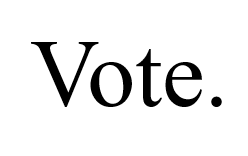- Interview with Zoe Chapple: VP Activities Candidate
- Interview with Rishi-Nayan Varodaria: Union President Candidate
- Interview with Parth Pandya: VP Education and Democracy Candidate
- Interview with Samuel Pegg: VP Activities Candidate
- Interview with Oliver Murray: Union President Candidate
- Interview with Xiao ‘Veronica’ Wang: VP Education and Democracy Candidate
- Interview with Benedict Madan: Union President Candidate
- RUMOUR HAS IT… 2022 UNION ELECTIONS RUMOURED SABBATICAL OFFICER CANDIDATES
- Interview with Jamie Biltcliffe: VP Education and Democracy Candidate
- Interview with Holly Denton: VP Education and Democracy Candidate
- Interview with Emily Bastable: VP Education and Democracy Candidate
- Spring Elections 2022 Candidates Revealed
- There’s still time to nominate yourself for a SUSU leadership role
- Interview with Harry Bull: Union President Candidate
- Interview with Ryan Couchman-Sawyer: VP Education and Democracy Candidate
- Interview with Selin Moustafa: VP Welfare and Community Candidate
- Interview with Ruby Turner: VP Welfare and Community Candidate
- Interview with Aycha Ates-Di Adamo: VP Welfare and Community Candidate
- Interview with VP Sports Candidate: Casie Osbourne
- Interview with Corin Holloway: VP Activities Candidate
- SUSU Spring Elections 2022 Liveblog
Wessex Scene were able to interview Holly Denton about their campaign to be the next VP Education and Democracy.
Holly elected to answer these questions during an interview.
Why did you apply for the role of VP education and democracy?
I’ve had a lot of experience. I’m the President of the School of Social, Economic, and Political Science. I’ve had quite a lot of success in terms of making students feel more like they can actually feedback to lecturers and have a role in their education. I think that’s what one of the big issues is, is that a lot of students don’t feel comfortable in communicating with the uni and I wanted students to actually feel comfortable and feel supported throughout any issues, and that they can actually ask someone if they want help.
If you are elected, what would be your top three areas of focus?
PATs mainly. There’s been a lot of problems with PATs, especially within my school. I think the main problem is there’s not a consistency with them and I think people in Physics have wonderful experiences, and some people have the worst experiences of their lives with PATs. One of the first things I would do is push for a universal approach in which they’ve all had equal training, and they will have like a standard amount of times you have to meet with students.
Push for more like accessibility, because as a disabled student – I have autism, and I’ve got chronic lung disease – I know a lot of students who feel really uncomfortable asking for help and find it quite difficult if the university doesn’t already have accessibility needs in mind. So one of the things I would push for is making sure that all lectures are recorded, there are places you can go as a disabled student, and that enabling services is properly trained to help students even if they haven’t accessed the services before.
Finally, feedback. I think some people find it very difficult to email lecturers and because there’s not consistent feedback right now, where the end of module feedback isn’t consistent at the university, I’d make sure that there’s a continuous feedback approach where you can always tell your lecturer something but they don’t need to know it’s you.
What’s something that SUSU provides that you like? And what is something else that you would want to change or alter?
The advice service. I think that’s very good. The Student Union, I think, is quite accessible. But I would further push the advice service as something that isn’t just financial advice. There are complaints, a lot of people definitely view it as like specific academic help, or those kind of things. It’s never really a universal device for everything, I definitely want to push it so that students know the Student Union is here for all of your problems, and not just like one of your problems.
What do you identify as current problems with the VP Education and Democracy role and how would you aim to combat these?
I think the VP Education is currently doing a great job, but it’s very hard to successfully promote anything at the university without strong course representatives. That’s one of the big problems — some courses have course representatives, but most don’t. I think 50% of my school doesn’t have any, and you can’t actually get any feedback. When the university talks to students, they’re talking to the VP Education, but they won’t know unless they’ve had course representative feedback, or they’ve gone out and talked to as many lecturers as possible. I think I’d definitely push to increase course representatives or something that students know exist and want to help them because then eventually, more people would run for course representatives. And we’d actually get like a proper democratic system in place instead of just hoping that one course rep will tell you what’s going on.
How would you try and reassure students that their voices matter when the university chose to ignore the recent all-student vote?
Even though the university decided to ignore the all-student vote, that isn’t all of the university. After the vote, I had quite a lot of meetings with my Head of School and they clearly didn’t want students to feel this way. Students do have a voice and if you don’t push at the school level, you won’t be able to see it. It’s really hard to tell students that they’re being listened to if you’re not seeing the actual evidence, but like if you tell them that you’ve had a meeting and then they’ve implemented these things, then I felt like students should be more supported. The lecturers I’ve talked to and the Head of Schools I’ve talked to really want to help students and when they were told about their issues, they worked on them and they emailed and everything. Sometimes we won’t be able to change the university’s mind but that doesn’t mean they won’t listen to us.
What is your idea to streamline communication between students and faculty, and how is this better than what is already in place?
I’d definitely focus on having more schoolwide and faculty-wide activities in which students can meet the faculty leaders, students meet lecturers and department heads, because then the department heads actually know what the students want. I think a lot of students feel very disconnected from the faculties that they’re in and very disconnected from the departments that they’re in. Most people, especially with COVID, don’t know the lecturers and don’t know who to go to for help, and having activities in which course representatives and department heads are really apparent will make a much more friendly rapport between students and lecturers, so they feel more comfortable to come up to people and tell you there’s a problem. I think definitely just making it not as formal of a process because right now, you’ve got to email someone, you’ve got to email your course representative and it’s not very natural, like you have to be really pushed into doing it – and it’s not easy to talk to someone you’ve never met before, and let them know that you’re having a mental breakdown. So having a much more informal setting in which students can chat to the lecturers and have a fun time outside of their problems. When they do have problems they can talk and then they’ll get support throughout the faculties. I think having that university-wide would be really helpful.
How do you seek to achieve increased PAT training? And what training would you be offering them?
So PATs can be great but also not so great. I’ve done a few surveys in my School, and one of the largest issues is that students don’t know what PATs are for, and PATs don’t know what students want them to be for. I think that’s the big problem. PATs have this expectation that students are going to reach out to them and students have the expectation that PATs are going to reach out to them. It just means that there is no communication ever. One of the things I would do is make sure that PATs have all had consistent mental health support training, they all know exactly where to point people and how to be comforting in an email. Because sometimes it’s a very harsh email and you get a response back that’s basically like a robot. It’s not nice.
I’d also push to have PATs aware of having informal sessions and be trained with more informal sessions with a group of their tutees so they have a rapport with students that isn’t just ‘talk to me when you’re depressed’ or ‘talk to me when you’re having an academic issue’. So we trialled this within my department and we find it really successful having students chat to their PATs outside of just the problem. And not just a meeting, go to a coffee shop, be your friend, not just the random person you’re supposed to talk to. I think just having consistency where everyone feels like they can talk to the PATs, and it’s not just one department is amazing and the other one has like zero contact hours, because that’s the key problem. In feedback, everyone’s like, ‘I’ve never met my PAT, I don’t know what they’re there for’ and it’s ensuring everyone knows what they’re there for.
Finally, what options would you like to be able to provide to those who are unable to attend any university lectures?
Recorded lectures is like the bare minimum, I would say. You can’t always know when you’re going to wake up and not be able to go to lectures, you’re not going to know if you wake up and have to go to hospital, for example, that’s not something that you have control over. That’s not something that students should have to ask their lecturers to provide, that should be a blanket policy. I think if your lecturers are aware that you can’t attend in-person you should be able to attend online, having lectures which are in-person live-streamed so you can actually feel more like you’re communicating and not just like you’re watching a YouTube video. Also, having more hybrid learning, which is quite difficult because we just had COVID and we don’t know how it’s all going to work, but I’d quite like it to be clear that if you aren’t in-person, you can still ask questions, and your lecturer could still respond – like having a little chat bar. That’s something I would like, because, as a disabled student, I haven’t been able to attend lectures quite a lot. And when you do catch up, you just kind of feel like you’re watching something that isn’t really applied to you and you want to ask questions. Also having a lot more push for communication with lecturers outside of the lessons. Like if you watch a lecture, I think it should be really clear that you can talk to your lecturer, you can talk to your seminar lead, and especially with seminars, I think it should be a lot more dynamic even if you’re not on campus. Because I think that’s something that with COVID, it kind of feels really awful sitting behind a computer screen and feeling very isolated and alone. And I don’t think any disabled student should have to feel that way. I don’t think any students should feel that way.
Wessex Scene attempted to contact Peerapat ‘James’ Sparks, Ruiya Wang, or Tomasz Duliban but unfortunately were not able to set up an interview.




